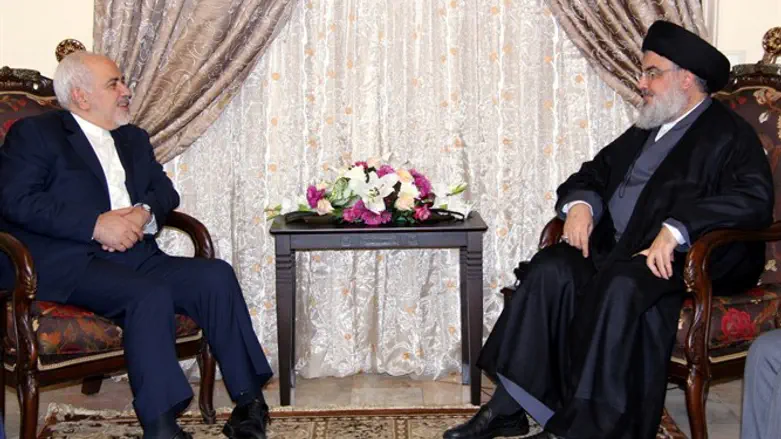
Iranian Foreign Minister Mohammad Javad Zarif on Monday met Hezbollah leader Hassan Nasrallah during an official visit to Lebanon.
The meeting was held in the presence of Iranian Ambassador to Lebanon Mohammad-Jalal Firouznia and the delegation accompanying Zarif, according to the Naharnet news website.
“Nasrallah thanked the Islamic Republic of Iran and its officials and people for what it has offered to Lebanon, Palestine and the region's resistance movements and peoples in the confrontation against Zionist aggression and takfiri terrorism,” Hezbollah’s Al-Manar TV said.
He also stressed that “this assistance has led to victories in many arenas and battlefields,” hoping Tehran will maintain its support “despite all the conspiracies and pressures it is facing as a result of that.”
Zarif for his part underlined “the Islamic Republic's firm stance that supports Lebanon and its state, people and resistance,” expressing its readiness to “offer all forms of help and cooperation in the various files that are on the table.”
The Iranian foreign minister, who arrived in Beirut on Sunday, extended an offer for Iranian military assistance to the US-backed Lebanese army.
Zarif’s comments came a few days after Nasrallah urged Lebanon’s government to accept anti-aircraft weapons from Iran to confront Israeli aircraft. He also said Iran was ready to provide Lebanon with electricity and medicine.
Hezbollah is Iran’s proxy in Lebanon, with the Islamic Republic having provided it with support over the years.
In October, American and western intelligence sources said Iran was supplying Hezbollah with Global Positioning System (GPS) components to make previously unguided rockets into precision guided-missiles.
In September, at his address at the UN General Assembly in New York, Prime Minister Binyamin Netanyahu shared photos of what he said were three Hezbollah “secret sites” near Beirut’s international airport, locations where the GPS components from Tehran were being assembled to turn the rockets into precision-guided missiles capable of striking deep inside Israel “within an accuracy of 10 meters (11 yards).”
Zarif’s visit to Lebanon follows the recent formation of a new government in Lebanon, headed by Prime Minister Saad Hariri, who is backed by Iran’s regional rival, Saudi Arabia.
Hezbollah, which has a strong political presence in Lebanon, is a major partner in the new cabinet and received an increased number of ministries.
Among other things, the group named the health minister, marking the first time it controls a ministry with a large budget.
